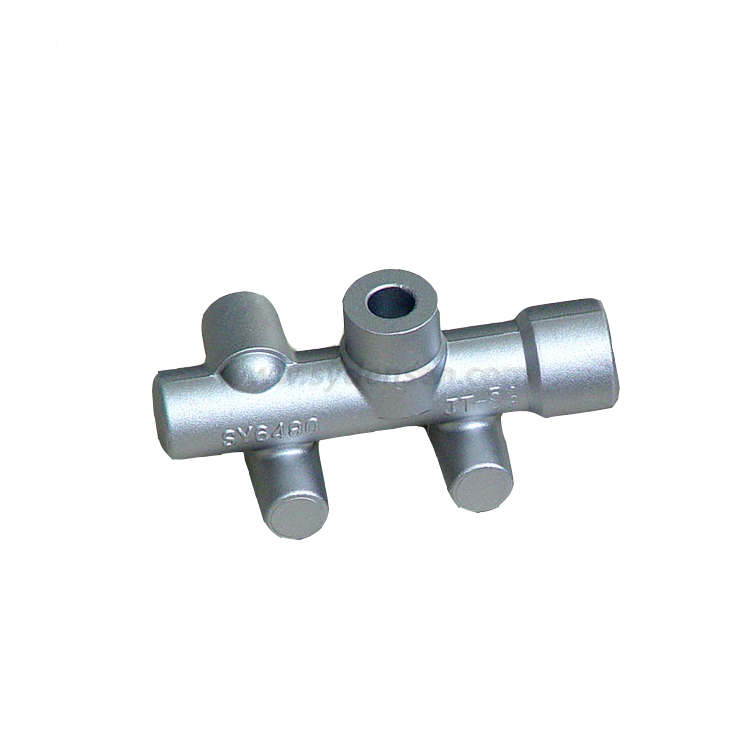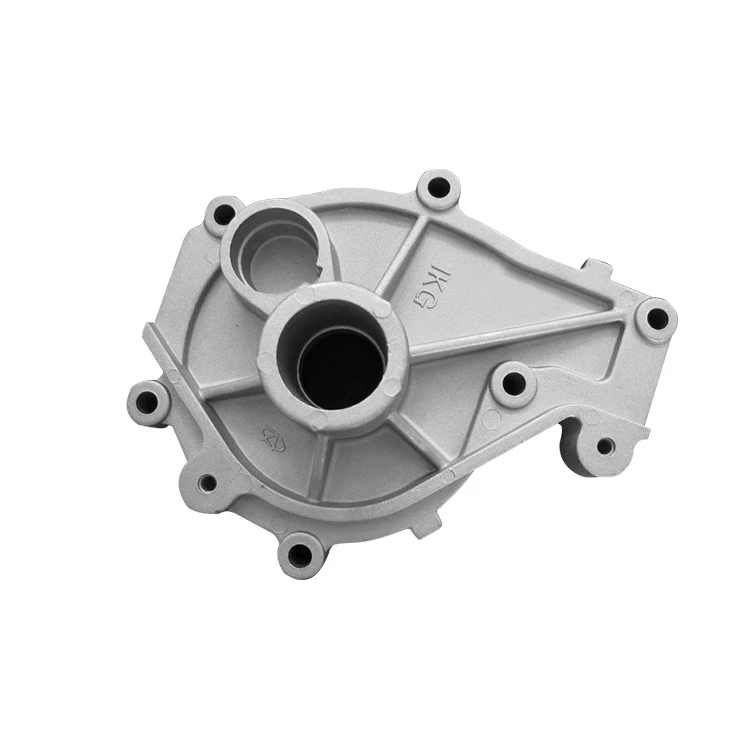The Future of Aluminum Foundries: Advancements and fads Shaping the Sector
The light weight aluminum foundry industry is undertaking substantial change. Trick trends highlight the relevance of sustainability and effectiveness. Developments in smart manufacturing and automation are coming to be prevalent. Factories are increasingly concentrated on making use of recycled materials. This shift elevates inquiries about future techniques and modern technologies. Exactly how will these changes impact manufacturing techniques and market dynamics? The answers might redefine the market landscape in unforeseen methods.
Improvements in Smart Production Technologies
As the aluminum shop sector develops, advancements in clever manufacturing modern technologies are coming to be increasingly important for boosting efficiency and effectiveness. The assimilation of automation, artificial knowledge, and the Net of Things (IoT) is transforming typical foundry operations. These modern technologies allow real-time surveillance of processes, enabling instant changes that enhance result and reduce waste.
Machine learning algorithms analyze production information to determine patterns and forecast maintenance demands, minimizing downtime. Robotics are significantly used for repetitive tasks, releasing knowledgeable employees to concentrate on even more complex obstacles. Additionally, electronic twins-- digital designs of physical processes-- help with simulations that can enhance design and functional techniques.
The fostering of these smart manufacturing technologies is driving affordable benefits in the aluminum factory market. By streamlining operations and improving decision-making capabilities, factories can satisfy growing market demands while keeping top notch standards. The future of light weight aluminum factories is undoubtedly connected to these technical innovations.
Accepting Eco-Friendly Products and Processes
The light weight aluminum shop industry is significantly focusing on environmentally friendly products and processes to improve sustainability. This change consists of the adoption of lasting material sourcing, energy-efficient manufacturing methods, and effective recycling and waste management strategies. By incorporating these methods, factories intend to minimize their ecological influence while preserving competitiveness in the market.
Lasting Material Sourcing
Just how can light weight aluminum shops improve their sustainability efforts? Lasting material sourcing has actually arised as a vital strategy in attaining this objective. By focusing on recycled light weight aluminum, factories can greatly reduce their ecological footprint, as recycled products call for less power and less sources compared to primary light weight aluminum production. On top of that, sourcing materials from certified vendors that stick to environment-friendly methods advertises liable mining and reduces ecological impact. Factories are also exploring alternative materials, such as biopolymers and green coatings, to match standard light weight aluminum procedures. Collaborating with stakeholders, including distributors and ecological organizations, fosters innovation in sourcing techniques. Eventually, embracing sustainable material sourcing not only aligns with global sustainability goals but likewise positions light weight aluminum factories as leaders in environmentally responsible production.
Energy-Efficient Manufacturing Techniques
Aluminum shops are progressively embracing energy-efficient manufacturing techniques to enhance their sustainable product sourcing campaigns. These techniques concentrate on lessening power consumption throughout the production process. Advanced modern technologies, such as induction melting and enhanced casting processes, are being carried out to lower the total carbon impact. Furthermore, automation and clever production systems boost operational effectiveness, enabling for far better power monitoring. Foundries are additionally exploring the assimilation of renewable resource sources, such as solar and wind, to power their operations. By prioritizing power efficiency, light weight aluminum factories not only reduced production expenses yet likewise align themselves with worldwide sustainability goals, ensuring a more environmentally responsible strategy to light weight aluminum manufacturing while fulfilling the climbing demand for eco-friendly techniques in the industry.
Reusing and Waste Monitoring
Welcoming environment-friendly products and processes, aluminum factories are focusing on recycling and waste administration strategies to improve sustainability in their operations. By integrating closed-loop systems, these centers are lessening waste and optimizing source efficiency. Scrap aluminum, an easily offered product, is being recycled on-site, greatly lowering the requirement for virgin products and lowering power intake. Developments in arranging and refining innovations additionally promote the recycling of light weight aluminum, making certain that also infected products can be repurposed properly. Additionally, foundries are adopting lasting techniques such as reducing hazardous waste and promoting the use of biodegradable materials for packaging. This commitment to recycling not only reduces ecological effect but likewise improves the financial feasibility of light weight aluminum factories in an open market.
The Function of Automation and Robotics
Automation and robotics are significantly changing the light weight aluminum factory sector, significantly improving production performance. By incorporating advanced technologies, shops can lower labor prices while simultaneously improving safety standards for their workforce. This change not just enhances operations however likewise positions the industry for lasting development in an open market.
Improved Production Performance
Transforming manufacturing processes, the integration of sophisticated robotics and automation technologies has actually become a keystone for light weight aluminum shops looking for enhanced efficiency. These technologies simplify operations, reduce cycle times, and enhance item quality by minimizing human mistake. Automated systems can check manufacturing lines in real-time, permitting instant adjustments that enhance output. On top of that, robotics facilitate the handling of harmful products, making sure more secure workplace while boosting throughput. Anticipating maintenance innovations additionally contribute to effectiveness by preparing for equipment failings, therefore lowering downtime. As a result, aluminum foundries can attain greater uniformity in their products while reacting much more promptly to market demands. This accept of automation is establishing a brand-new requirement for efficiency and operational excellence within the market.

Reducing Labor Costs
The shift towards advanced robotics and automation in light weight aluminum foundries not just boosts manufacturing efficiency but also plays a considerable role in decreasing labor prices. By integrating automated systems, shops can reduce the dependence on manual work, which typically involves high incomes and training expenditures. Robotics streamline repetitive jobs such as putting, molding, and ending check over here up, enabling a greater output with less workers. This technical change not only reduces labor-related prices yet additionally enhances consistency and quality in manufacturing. Automation can run around the clock, maximizing operational hours without the associated expenses of overtime or change differentials. Because of this, light weight aluminum foundries can achieve significant cost savings while preserving competitive rates in a progressing market landscape.
Improving Safety And Security Criteria
While traditional light weight aluminum factory procedures commonly subject employees to harmful atmospheres, the assimilation of robotics and automation considerably enhances safety and security criteria within the market. Automated systems can execute high-risk jobs, such as molten metal handling and heavy lifting, lowering human exposure to dangerous problems. Additionally, robotics can operate in severe temperatures and hazardous ambiences, effectively lessening the risk of injury. Advanced keeping an eye on technologies and expert system assurance real-time safety evaluations, enabling instant reactions to prospective threats. Automation see this streamlines process, reducing the probability of mishaps caused by human error. Consequently, the fostering of these technologies not only boosts security however likewise cultivates an extra productive and efficient workplace in light weight aluminum shops.
Enhancing Power Performance in Manufacturing
As light weight aluminum shops look for to maintain competitiveness in an advancing market, boosting power efficiency in production has arised as an essential focus. By adopting sophisticated technologies such as high-efficiency melting heaters and automated temperature controls, factories can especially decrease energy intake. Implementing real-time monitoring systems enables precise monitoring of power use throughout the production process, making it possible for fast modifications to optimize efficiency.
In addition, changing to alternative energy sources, including sustainable choices, can further reduce the carbon impact. The assimilation of power recuperation systems, which reclaim waste heat for reuse, is becoming significantly typical. Training workers in energy administration techniques ensures that everybody associated with the production procedure is mindful of power usage.
These campaigns not just reduced functional prices yet likewise align with international sustainability goals, placing aluminum factories as liable players in the market while improving their overall competition. - Aluminum Casting Company
Advancements in Recycling Light Weight Aluminum
Innovations in reusing light weight aluminum have obtained momentum together with efforts to boost energy effectiveness in manufacturing. The aluminum industry has welcomed advanced innovations that improve the recycling procedure, lowering energy consumption and environmental influence. Techniques such as hydrometallurgy and new sorting modern technologies improve the extraction of aluminum from scrap, improving return prices and making sure higher top quality recycled material.
Furthermore, the advancement of closed-loop recycling systems enables shops to recycle light weight aluminum without significant degradation in high quality, making the process a lot more lasting. Advancements in logistics and collection, including enhanced monitoring systems and automated sorting, have likewise played an essential role in increasing the efficiency of aluminum recovery. These innovations not just add to a circular economic climate however additionally assist alleviate the carbon impact connected with light weight aluminum manufacturing. As the demand for sustainable techniques expands, these developments position the aluminum factory field as a leader in accountable source management.
Reacting to Market Needs and Consumer Trends
Versatility has actually become a keystone for light weight aluminum shops replying to progressing market demands and customer fads. As sectors progressively focus on sustainability, light weight aluminum foundries are changing towards environment-friendly practices, consisting of improved recycling processes and lowered carbon footprints. This change lines up with consumer choices for ecologically responsible items, driving factories to introduce their offerings.
Additionally, the surge of lightweight products in auto and aerospace markets requires improvements in aluminum alloys and casting techniques. Foundries are purchasing r & d to create high-strength, lightweight parts that meet rigid performance standards.
Modification has actually acquired traction, with customers looking for tailored remedies. Aluminum factories are leveraging innovative manufacturing innovations, such as 3D printing, to suit specific client requirements successfully. This responsiveness not only satisfies customer demands however additionally positions aluminum factories competitively in important link a dynamic market landscape, guaranteeing their importance in an ever-changing commercial setting.

Regularly Asked Inquiries
Exactly How Do Light Weight Aluminum Foundries Influence Citizen Economies?
Light weight aluminum factories significantly impact local economies by creating work, stimulating demand for local suppliers, and adding to community growth. Their procedures usually cause enhanced tax earnings, which can fund important civil services and infrastructure improvements.
What Are the Safety And Security Regulations for Light Weight Aluminum Factory Workers?
Safety and security laws for light weight aluminum shop workers consist of mandatory personal safety devices, correct ventilation systems, normal training on hazardous materials, and adherence to guidelines set by job-related wellness and safety administrations to lessen dangers and warranty employee safety. - aluminum casting
How Does Light Weight Aluminum Recycling Affect Global Supply Chains?
Aluminum reusing substantially decreases demand for resources, boosts source effectiveness, and stabilizes costs. This change influences worldwide supply chains by cultivating a circular economy, promoting sustainability, and guaranteeing an extra resistant market in fluctuating markets.
What Occupation Opportunities Exist in the Aluminum Factory Sector?
Different job chances exist in the aluminum factory industry, consisting of roles in engineering, high quality control, production management, and r & d. Knowledgeable labor placements such as mold manufacturers and maker operators are additionally popular.
How Do International Trade Policies Influence Aluminum Foundries?
International trade policies substantially influence aluminum foundries by affecting import tariffs, supply chain dynamics, and market access. These factors can influence operational prices, competitiveness, and overall success within the worldwide light weight aluminum production landscape.
By focusing on recycled light weight aluminum, factories can considerably minimize their ecological impact, as recycled materials call for much less energy and less resources contrasted to key light weight aluminum production. Aluminum foundries are increasingly adopting energy-efficient manufacturing strategies to match their sustainable material sourcing campaigns. Automation and robotics are significantly transforming the aluminum foundry sector, substantially improving production efficiency. The change towards advanced robotics and automation in light weight aluminum factories not just improves production performance yet additionally plays a considerable role in reducing labor prices. As light weight aluminum foundries look for to preserve competitiveness in a developing market, improving energy efficiency in manufacturing has arised as an important focus.